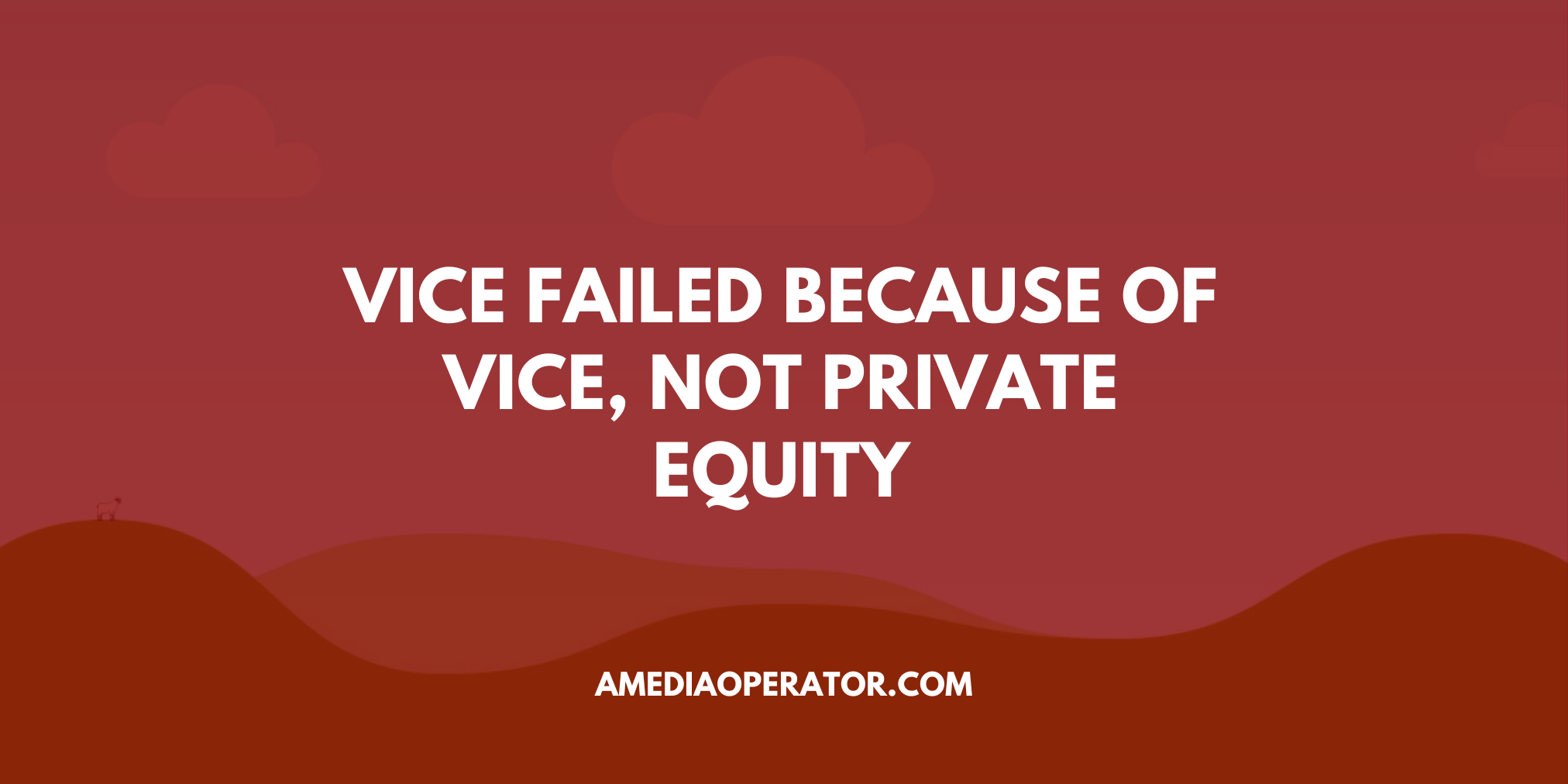- The Publisher Newsletter
- Posts
- Wednesday 31st May: Vice failed because of Vice, not private equity
Wednesday 31st May: Vice failed because of Vice, not private equity
Good morning! Today's newsletter is brought to you by Chris.
Pugpig is the publishing platform that powers the world’s leading media brands. We make it super easy to launch deeply engaging mobile apps and beautifully curated archives in no time, with zero fuss. Share your content far and wide with minimum effort and maximum impact on a platform that's highly customisable and constantly evolving with the needs of the industry. Powering over 170 publishers and 360 global media brands, Pugpig is the world's favourite publishing platform. Ready to chat mobile? Come and chat with Jonny and Dom at the FIPP World Media Congress in Lisbon next week.
This is a good counterpart to this week’s podcast, in which Neil Thackray and Peter discuss the extent to which VC funding is responsible for the focus on the shiny and new at the expense of long-term sustainability. In the linked article, Jacob Donnelly takes a look at Vice’s relationship with its investors in order to determine where the blame for that site’s bankruptcy should lie.
He says: “We should not confuse TPG’s investment in Vice with how other private equity firms have gutted local newspapers. Vice chose to take the money from investors and then waste it. These local newspapers, frankly, had no choice. They were truly failing.”
His argument is that it is operators that seek scale — and take funding to achieve that and that alone — that need to take responsibility when that fails. We’ve seen some real howlers when it comes to media founders taking or failing to take responsibility for failures lately (hello, Mr. Peretti!), so it’s great to see Donnelly arguing for absolute accountability where it matters.
From what I’ve seen on Twitter Nick Cohen’s awful behaviour was an open secret among young journalists for years, with freelancers actively warned about him. But as this article makes extremely explicit, many many people in top positions across the industry were also aware and simply chose not to report upon it. It’s a terrible look for both the Guardian and the Financial Times - two titles that you’d expect to be better about this stuff.
I’m not an AI catastrophist, particularly around generative AI. It’s a tool, it’s going to create an awful lot of bland, boring art and a fair amount of disinformation. I do think — as I wrote here — that we need a few new roles and responsibilities to deal with it, though. That need has been brought into starker focus here, as Teemu Henriksson explains that newsrooms have been caught somewhat on the back foot by it all.
I didn’t get to pop over to the Podcast Show this year — but I wish I had, solely for the discussion of the different expectations guests have when agreeing to appear. The prevailing wind, apparently, is that podcasting is primarily an entertainment medium and so isn’t a place to do investigative, hard-hitting interviews. Many of our News and Politics Podcast Award winners would beg to differ.
More from Media Voices







